CTCI Family
CTCI地球村
Start Fresh in Oman, Oliver’s 800 Days in the Switzerland of the Middle East
— Zih Long Hsu, Site Control Engineer, Construction Operation Dept., CTCI Corp., Group Engineering Business

Photo taken at Liwa site.
Can you briefly tell us about yourself?
Hi, I am Oliver from the Construction Division. I have the great opportunity to take part in two CTCI projects: the first project is Taiwan Taichung LNG Terminal Phase II Project, and the second project is Oman Liwa Plastics Industrial Complex. Joining the Construction Division is a great career path that helps me understand construction and engineering in practice. In addition, the Construction Division is like one big family, where we live together and work together most of the time, giving me the chance to learn from my experienced colleagues. I also enjoy travelling and experiencing different cultures over the world, and I look forward to always learning new things at CTCI.
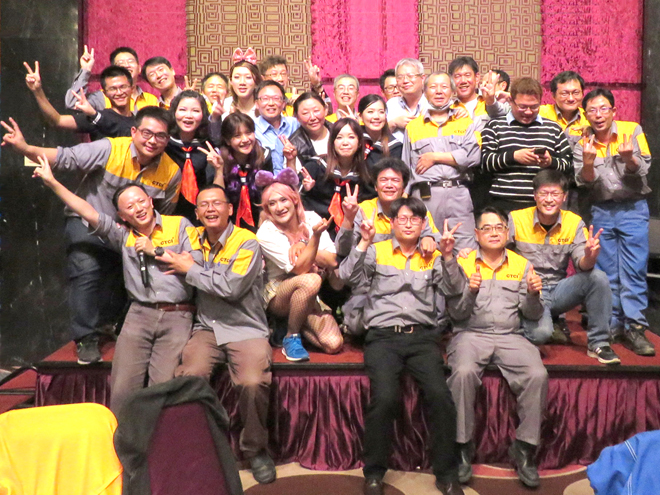
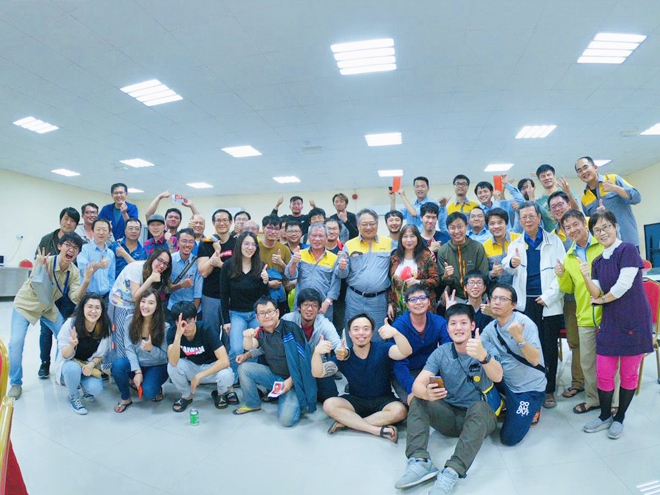
What made you join CTCI?
The story begins from my college days. I learned that CTCI is a Taiwan-based global company during my sophomore year. One day, I went to a job fair with a friend, where a senior CTCI employee shared with me his overseas working experience, which sounded really interesting. I thought that an overseas working experience will become a special memory in life, so that’s why I made up my mind to join CTCI after I graduate. Four years later, I passed my oral defense for the master’s degree and was lucky to get an interview opportunity on that same day. I was thrilled when I finally received an offer from CTCI, something that to this day I remain grateful to my friend for. I think this is destiny.
Could you share some unforgettable/interesting experience you had when working abroad?
Liwa project is like a global village, where we have colleagues coming from many places, including North America, South America, Africa, Asia, and Australia. Interesting things were happening all the time. The first serious challenge I faced was language. I spent some time getting used to different English accents, especially when I didn’t realize that I would be having a hard time with Texan English accent. Among all accents, I find Indian accent probably being the most difficult to figure out, because not only do Indian colleagues have their own accents, they also pronounce words differently, for example, words such as “data”, “schedule”, “distance”, and “receipt”. However, this did not pose as a big problem once we caught the key words of a conversation.
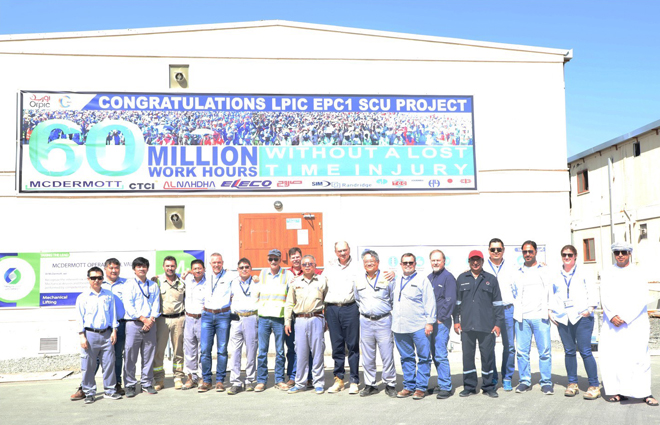
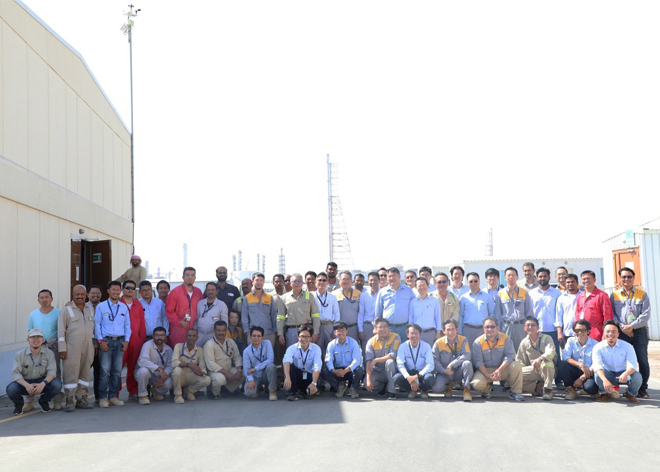
In addition, body language may be confusing sometimes, and for those coming from a different cultural background, some expressions may cause misunderstanding. For instance, contrary to the meaning we attach to head shaking, if an Indian colleague shakes his head, it actually means he agrees with what is being said. Another body language I found confusing at first was the Arabic gesture “Shui shui”, a gesture that I kept seeing security guard doing all the time. I only realized that it means “slow down” after my coworker explained it to me.
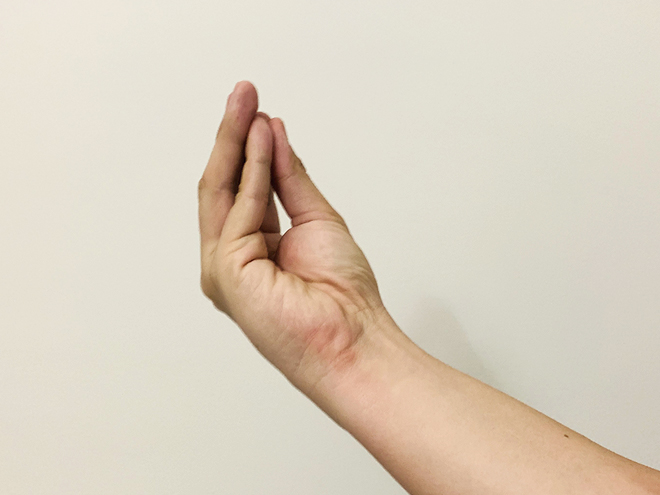
Arabic gesture “Shui shui”.
A third thing that I found surprising was the smell. As we know, people from countries in the Middle East and in South Asia, such as India and Nepal, like to use spices for cooking, making drinks or as a kind of perfume. I found many Omanis, Indians, South East Asians, and western people in general have complicated smells on their bodies. The most special smell is frankincense, which is rich in Oman and Omanis like to spray it in the office. Sometimes I could not smell pure air in the office. But after two years of “training”, I could tell people’s nationalities simply by smell.
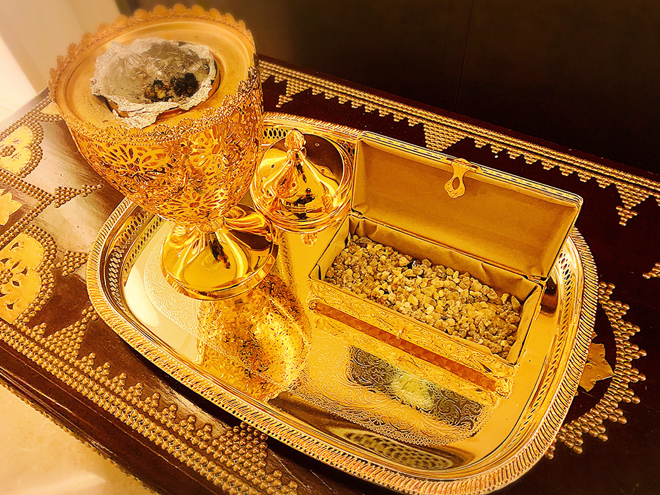
A special incense burner for frankincense in Oman.
The most unforgettable experience is that many Indian colleagues thought I resemble an Indian movie actor. When I heard the first Indian telling me this, I thought he was kidding. But then there was a second Indian telling me the same thing. I thought it’s probably because the first Indian told him to fool me again. Then a third Indian colleague asked me if I have an Indian brother, due to my resemblance to a movie actor named Siddharth Lama, who is best known for his role as the little Rimpoche in a popular Indian movie “Yoddha: The Warrior”, and he showed me the actor’s picture. To be honest, only the haircut and his eyes are similar to mine. But as more and more Indian coworkers kept telling me that I looked like the actor, I would just say yes, he is my brother. What a good way for Indian colleagues to remember me!
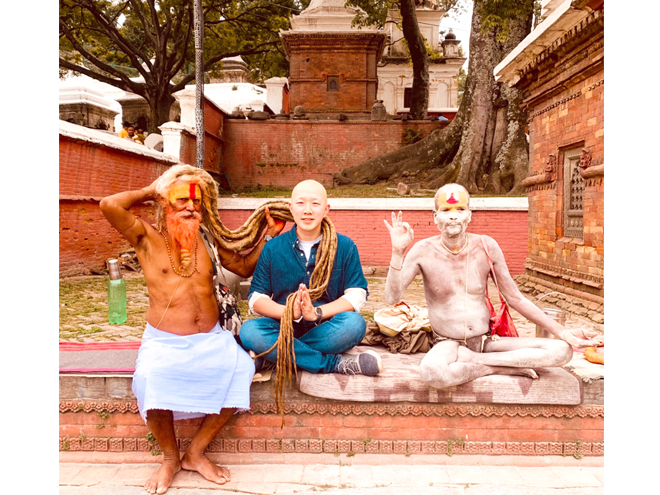
A photo of me (center) taken in Nepal, which may bear some resemblance to the actor Siddharth Lama, who was actually born in Nepal.
How do you get rid of work stress?
As a Taiwanese proverb goes: “Nothing is more important than eating.” But I find Omani food quite different from Taiwan, and I couldn’t find any Taiwanese food restaurant in Oman (except for the fast food branches), so I miss Taiwanese foods a lot. Thanks to YouTube, I can learn to make my own Taiwanese dishes by watching clips. I am also grateful that some of my colleagues taught me how to cook scallion pancakes and Chinese dumplings, and some colleagues are very brave to be my guests. There were occasional mistakes, the most unforgettable one being Oman curry, where at first I was planning to cook Japanese curry, but then thought that coffee sounds like a good idea to make the taste stronger, so I put some Omani coffee into the curry mix—very unfortunately— and the curry is full of cardamom smell. This terrible curry taste stuck in everyone’s mind since then. That being said, most of the time my guests are satisfied with my cooking. To get rid of work stress, sometimes I would do window shopping, and would see that supermarket Carrefour sells unusual foods, such as camel meat, camel milk, goat heads, and rabbit heads, which I never tried cooking before.
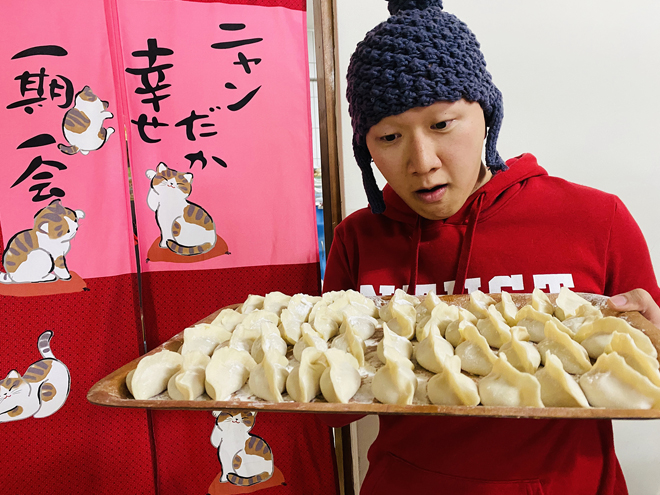
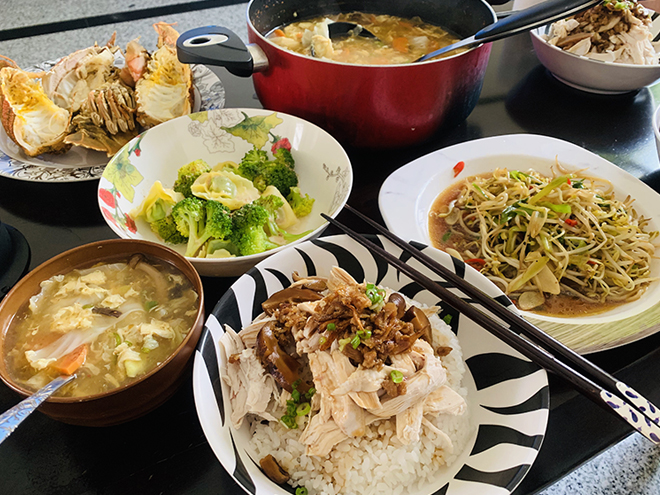
Could you give us some examples of the foreign culture and people that impress you during your stay (when being relocated)?
Oman is called the Switzerland of the Middle East and is safer than other gulf countries. In a world constantly in turmoil, Oman has remained neutral in international disputes. The Sultan of Oman has skillfully built relationships simultaneously with Saudi Arabia, Iran and the United States. Recently, Oman remained neutral and refused to engage in the Saudi-led policy of cutting ties with Qatar. Instead, it plays the role as mediator between the states involved. The Omani culture is totally different from Taiwan, whether it be food, religion, decoration, or language. Working in Oman is a good chance to become familiar with the Middle Eastern culture. Most Omanis speak fluent English and are friendly to foreigners. In addition, Omani traditional white clothes give the impression of cleanness and neatness. Compared to other countries in the Middle East, there are many laundries on the street, and Omani-styled garment is easily recognizable by the distinct “Kumma” hat that is only worn in Oman.
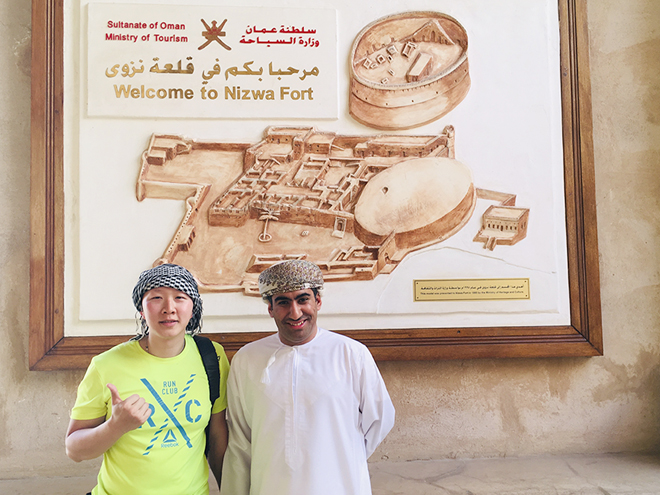
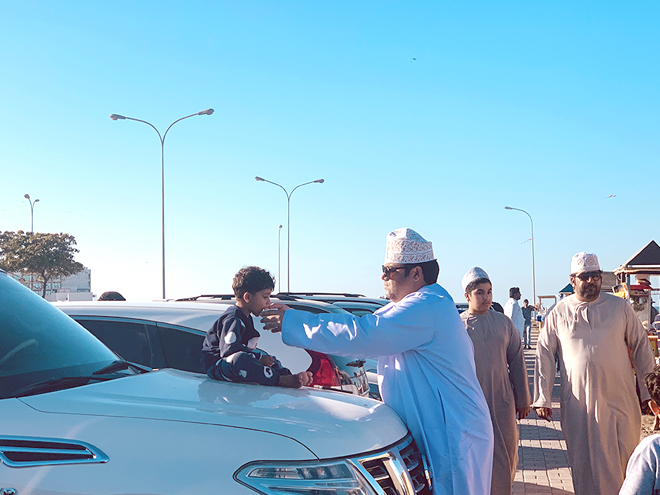
In Islamic countries, mosques are perhaps their most beautiful architecture, their importance is equivalent to temples in Taiwan. I had the chance to visit the biggest mosque in Sohar, called the Sultan Qaboos Grand Mosque. It has a spacious and serene interior, its praying hall adorned with beautiful carpet, precious light and gorgeous roof. Even though I am not a Muslim, I can nevertheless sense the peace and grandeur of the mosque.
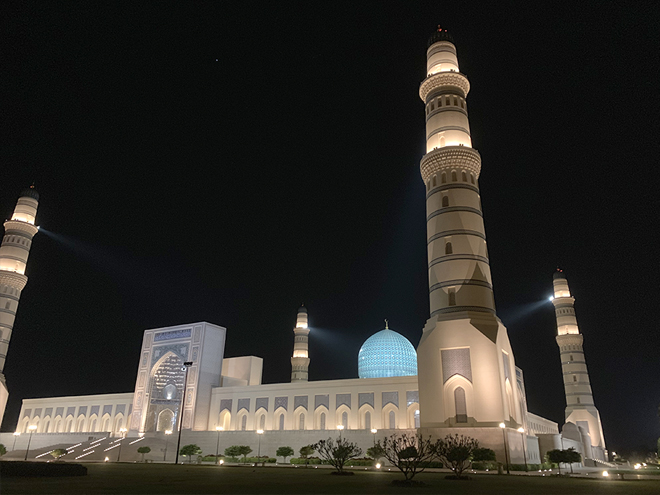
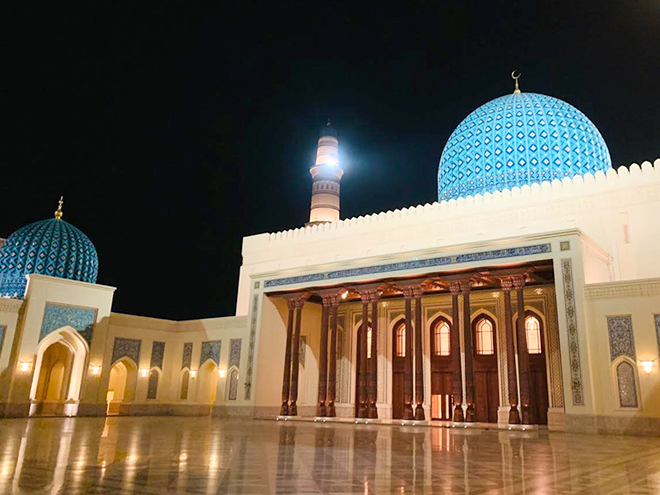
Another memorable experience was the 2020 Oman Muscat Marathon. I learned two things in this race. Firstly, NEVER GIVE UP. There were runners from various countries, from all ages and all conditions, including elder runners, disabled runners, and even runners who carried their babies with them. None of them gave up midway because they have the same goal of crossing the finishing line. To make their dreams come true, they overcame hardship with willpower. This is meaningful to me. Secondly, PARTNERSHIP. After the champion of the female 10KM-race crossed the finishing line, she didn’t stay at the finishing line, but instead ran back to accompany her partners. I saw that she kept cheering for other runners, running side by side, something that touched me and earned my respect for her. Her spirit is a great example of showing how one’s small help can become such a big encouragement for others. I hope you enjoy my Omani stories. Never give up and always value partnership.
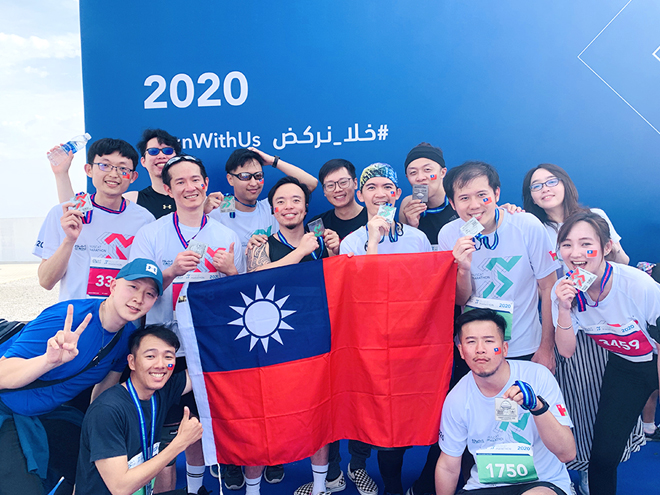
A group photo at 2020 Oman Muscat Marathon.
